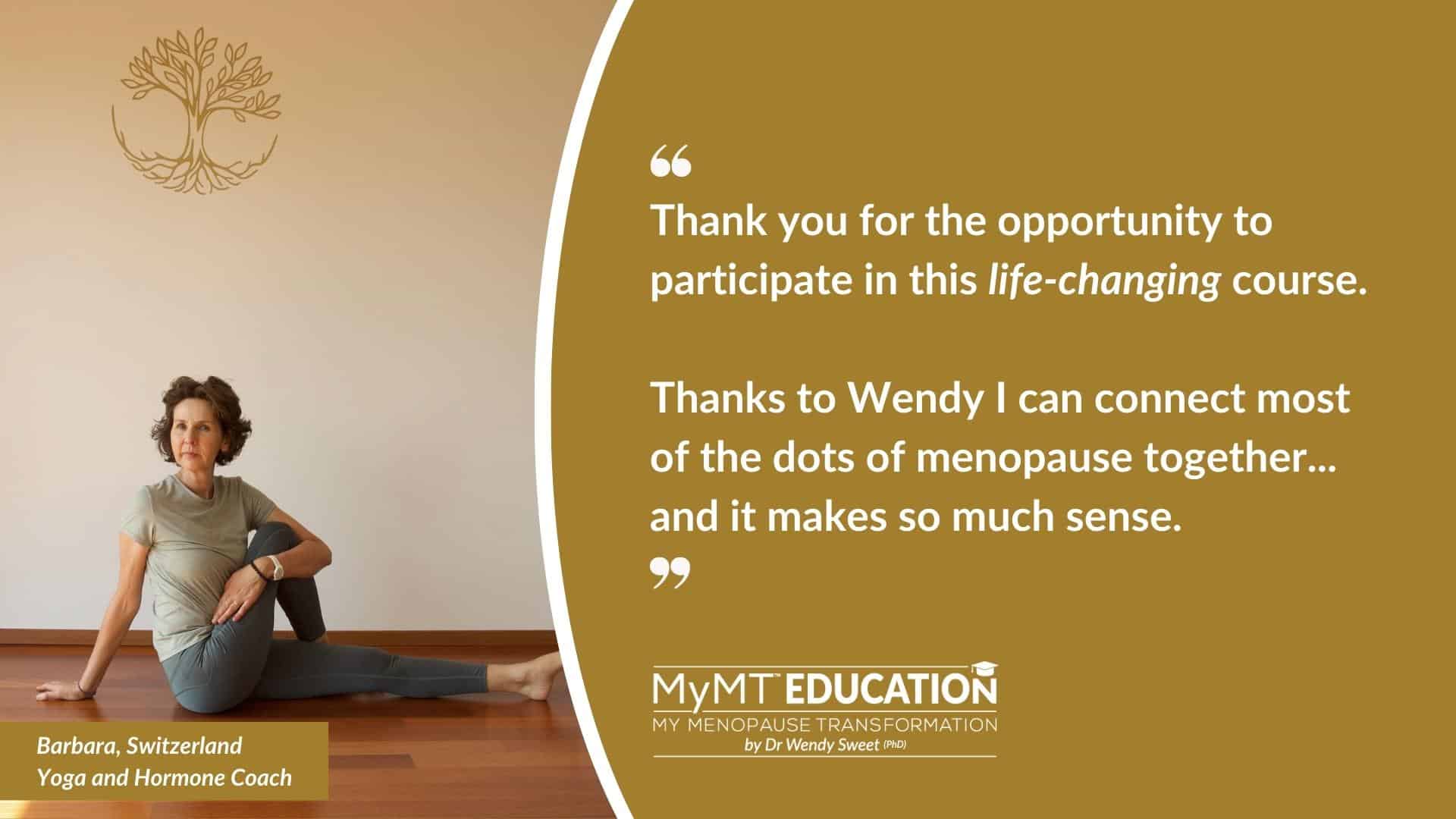As your clients begin to unwind as another festive season approaches, I wonder if you are helping them to focus on ‘Citrus for Christmas’. If not, then have a read when you can. I talk a lot about anti-inflammatory components in certain foods, on my Health Practitioner Course, and it all starts with citrus fruits.
Citrus fruits have been present in the diet of people living in Asia and the Mediterranean basin since the time of the Roman Empire. Not only do these fruits play an important role in the landscape but also in the diet of these populations. [Duarte et al, 2016; Naureen, 2013].
It is well known in many of these countries around the Mediterranean, that these beautiful, colourful fruits help to improve inflammatory markers as well as our immune health (Miles & Calder, 2021).
So, with the menopause transition now recognised as an inflammatory event, why aren’t we having citrus fruits in our diet?
As we move through mid-life, inflammatory changes occurring around the body, including in the lungs, means that changing our diet to accommodate these changes matters. We need a robust immune system to reduce the inflammation that builds up in menopause.
That’s why, after a long-haul flight back from America this week, one of the first things I did was to juice oranges and lemons for a Vitamin C post-flight immune-boosting drink!
I first became aware of the powerful effect that citrus intake has on the immune system and cardiovascular health as women age, when exploring why numerous women living in Mediterranean countries, don’t have the same menopause and post-menopause joint and muscle inflammation which many western women experience.
I was also aware of the evidence from women living in Japan, who use citrus intake to help lower their blood pressure. [Kato et al, 2014]. This is why I’m heartened by research (Miles & Calder, 2021), confirming my actions, even during and after travelling, that citrus juice belongs in my daily routine for the rest of my life!
When my mid-life menopausal body hobbled along to various specialists with sore joints, aching muscles, sore heels, heart palpitations and feelings of fatigue, not one of them mentioned my new ‘heroine’ of menopause health – Vitamin C – and to be fair to these wonderful specialists, nor did I give this vital vitamin a thought either.
But I should have – and I also needed to take note that the reason there was a lemon tree in my garden at the time, was that I needed to embrace this beautiful fruit during menopause.
Of all the nutrients we’re most familiar with, but possibly have in our diet the least, due to all the confusing dietary messages, Vitamin C is perhaps the most impressive.
Numerous women, and possibly some of your clients, may also be experiencing post-pandemic chronic fatigue or immune changes now that they are in their menopause transition. This is also why you can be promoting citrus juices to them.
Citrus fruit and fresh citrus juices (diluted) are a particularly good source of both Vitamin C and folate. Both of these nutrients have roles in sustaining the integrity of immunological barriers and reducing the inflammatory response.
Furthermore, with a known connection between low intake of folate and depression in older women (Reynolds, 2002) and the connection between low folate and hot flushes (Bani at al., 2013), midlife is the time to take this nutrient seriously.
Positioning our menopause and post-menopause transition in ageing and longevity science changed my life and I want to bring this to your attention so you too, can help your midlife and older clients make the right lifestyle and dietary choices. I go into the evidence behind these lifestyle strategies in my CPD Practitioner Courses too.
Most roads to clients being able to take back control of their menopause symptoms, including anxiety, heart health, weight gain and immune health, arises from better understanding of the impact that inflammatory changes have on the body as females age.
Peri-menopause is now known as an inflammatory event and this inflammation is particularly evident in the brain, nervous system, blood vessels and muscles and liver. (McCarthy- & Raval, 2020).
You’ve heard me talk about ‘Inflammaging’ over the past year, and this is the term given to the process of ageing which may result in pockets of inflammation occurring internally in cells and tissues.
One of the most important changes that women can therefore make to their daily routines, is to incorporate an anti-inflammatory diet. This is where Vitamin C and other anti-inflammatory nutrients come into the mix.
That’s the purpose of MyMT™ as well as my Practitioner courses – to teach you the evidence behind some of these lifestyle changes.

When I began to look at menopause through the biological lens of ageing research and my own joints and muscles were aching during the day and restless legs were keeping me awake at night, I began to understand that my ageing heart, immune system and joints were craving Vitamin C.
Not only does your skin need it because Vitamin C is a requirement in the collagen-repair pathway, but your immune system needs this powerful vitamin too.
Vitamin C is one of the most powerful anti-inflammatory nutrients available … and no, you don’t need expensive supplements, you just need lemons and oranges in your life instead. If you can’t tolerate these, then have apples. The Quercetin in apples is a known immune-system enhancer.
Research from Otago University in New Zealand, supports the role that Vitamin C plays in our immune defense.
This mighty vitamin supports various cellular functions of the immune system as well as supporting epithelial barrier function against pathogens in your skin (Carr & Maggini, 2017).
Don’t forget that the skin is your largest organ and because it is full of oestrogen receptors that lose the role of oestrogen as women move into post-menopause, all women need the Vitamin C as protection against environmental oxidative stress.
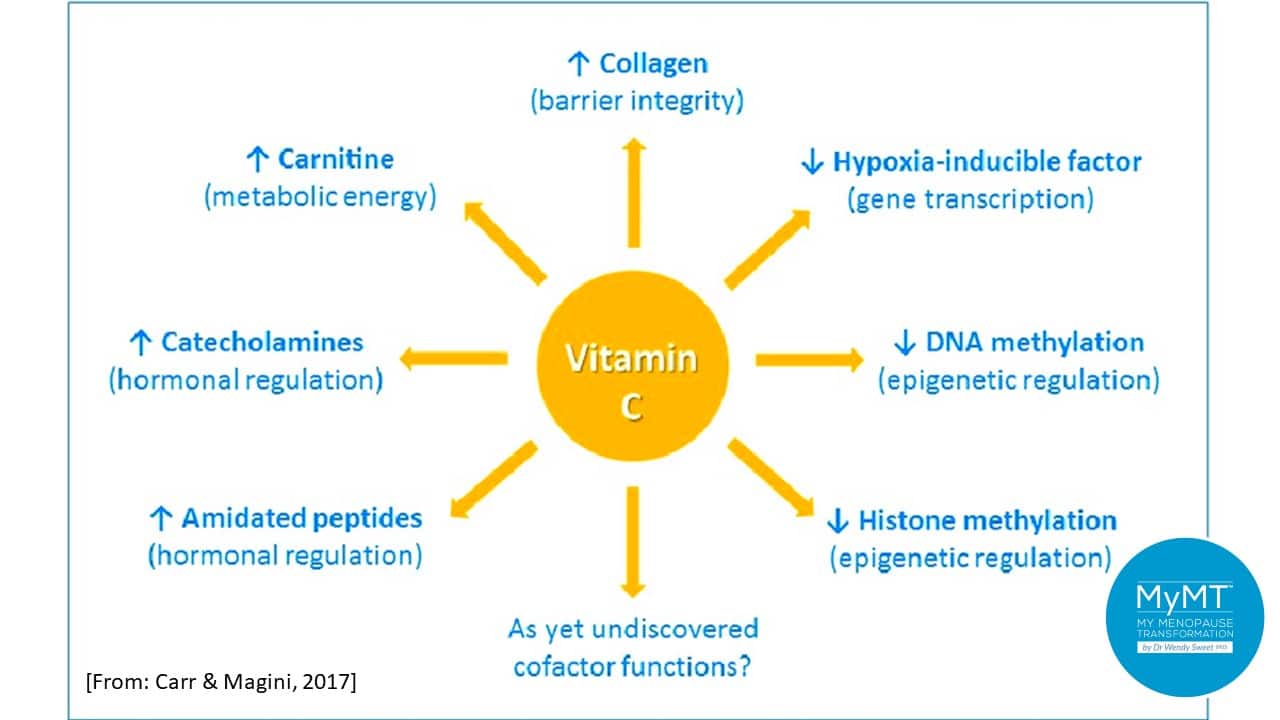
Every day as part of our normal metabolism, the human body loses approximately 3% of its Vitamin C. If you are exercising intensely, then you can double this loss, assuming that your intake of Vitamin C is low. Vitamin C is a ‘first-line’ anti-oxidant acting as a ‘free radical scavenger’.
This means that Vitamin C is an important nutrient that helps to protect cells from the damage caused by harmful substances (called ‘free radicals’). Vitamin C is also important for iron absorption, collagen repair, sleeping all night and it helps to make hormones too.
The highest concentrations of collagen in the human body are found in tendons, skin, artery walls, the cornea in the eyes, the endomysium (this is the sheath which surrounds muscle fibres which gets tight as we lose oestrogen), cartilage and the organic part of bones and teeth.
Hence, your clients who are regular exercisers, or your clients who have high stress levels, need to focus on their Vitamin C intake.
There’s also another reason to have more Citrus juice in your life as well as your clients, and as Miles & Calder (2021) explain,
“In humans, orange juice was shown to limit the post-prandial (after a meal) inflammation induced by a high-fat-high-carbohydrate meal. Consuming orange juice daily for a period of weeks has been reported to reduce markers of inflammation, including C-reactive Protein (C-rP).”
In recent years, there has been increasing public interest in plant antioxidants, thanks to the potential anti-carcinogenic (anti-cancer) and cardio-protective (heart protective) actions influenced by their biochemical properties.
Vitamin C is well known as an important anti-oxidant and anti-inflammatory nutrient. The pulp and juice from lemons and limes are rich sources of Vitamin C. So, not only are lemons an important source of Vitamin C, but so too are blood oranges.
I first came across the literature on blood oranges when I read historian and food scientist, Helena Attlee’s book called ‘The Land Where Lemons Grow’.
Travelling around Italy, she writes about the cultural and scientific interest in lemons, oranges and mandarins and relates this to numerous health benefits. Blood oranges are grown in Sicily in Italy, Spain and California (I’ve only just recently found them here in New Zealand).
The red (or blood) orange (Citrus sinensis) is a pigmented sweet orange variety typical of eastern Sicily (southern Italy). Research supports their huge contribution to an anti-inflammatory and heart-protective as well as anti-cancer diet. Blood oranges help enzymes to fight harmful free-radicals in the body.
It’s why women on my programmes know that one of the most important kitchen appliances or implements that they need, is either a good quality juicer, or a hand-squeezed one instead.
If you look at the symptoms of lowered Vitamin C, you will see a host of issues from low energy, to easy bruising, to painful, swollen joints, to skin problems and more.
All factors that get gathered up as ‘menopause symptoms’ and are then normalised within an ‘age-decline’ paradigm. But when you actually make the time to get the right nutrients into your body (and not necessarily from supplements), then surprisingly, many of these symptoms go away. Funny that.
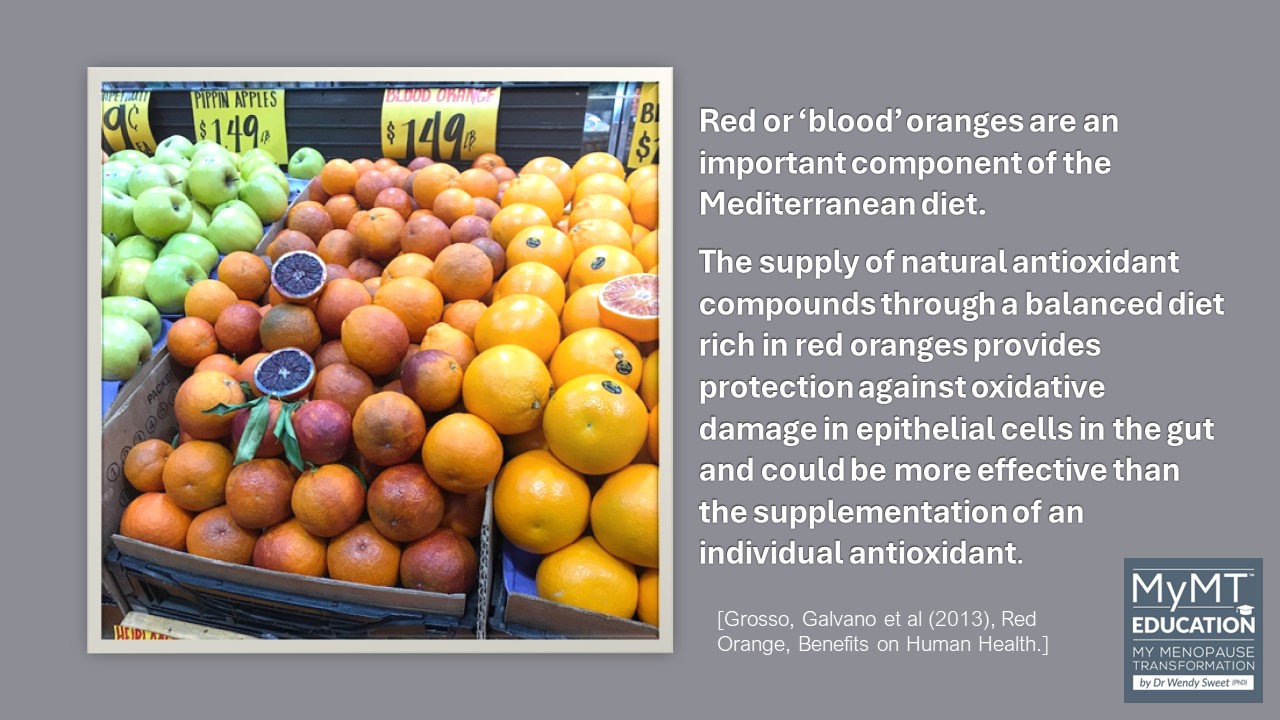
It was a long time before anyone understood why lemon juice cured diseases such as scurvy. But as nutrition research expanded and the role of all the vitamins were discovered, it was assumed that the scurvy was cured when sailors had enough ascorbic acid (Vitamin C).
The first clinical trials were undertaken on guinea pigs and in 1927, a Hungarian biochemist, isolated a compound called hexuronic acid and the guinea pigs fed this compound thrived, whilst the other group developed scurvy.
The experiment demonstrated that the compound (now called Ascorbic Acid or Vitamin C), in lemon juice was the key ingredient. So began a new understanding about Vitamin C and a Nobel Prize for the Hungarian biochemist for his work in 1937.
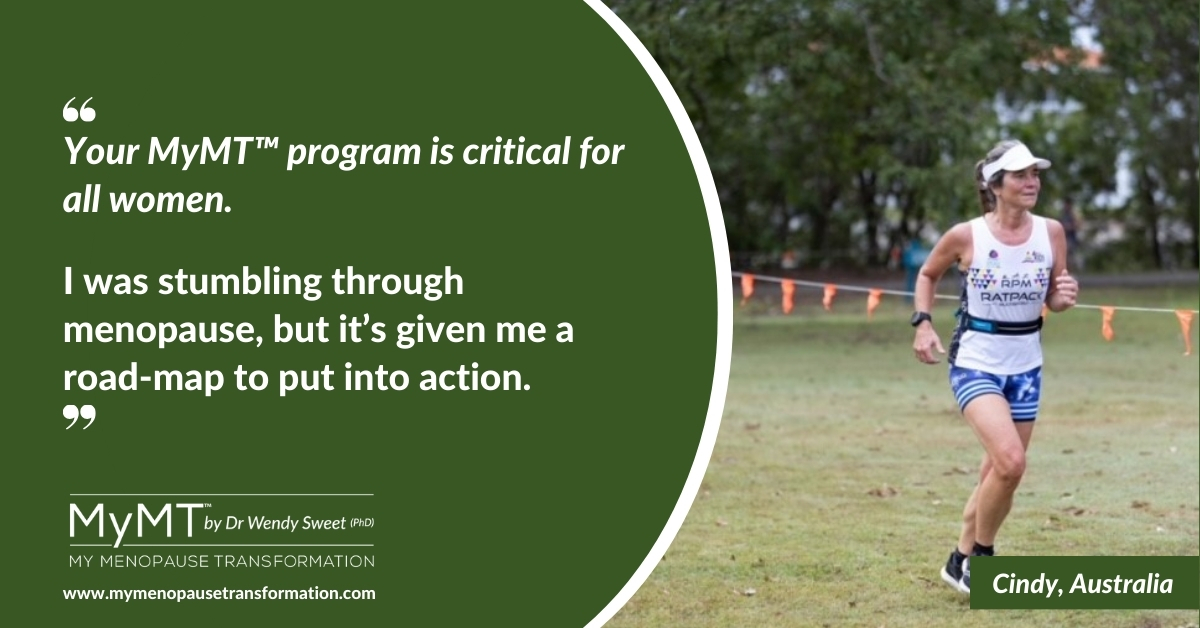
"The role of the immune system is to protect the individual against pathogenic organisms including bacteria, viruses, fungi and parasites. Bioactive components that reduce inflammation are present in high amounts in sweet oranges, lemons, limes and tangerines." [Miles & Calder, 2021]
Teaching your clients how to work with the natural changes that are occurring during their menopause transition and into post-menopause, is fundamental to your role and it’s why I enjoy educating Practitioners about this.
There are long traditions of healthy ageing in Mediterranean countries including the Blue Zone’s countries where some of the worlds healthiest and longest-living men and women live. Women living in Blue Zones countries can give us clues as to how to approach lifestyle change during menopause.
I was interviewed by New York Journalist, Shirley Velasquez, on this very subject recently, and if you haven’t read her article, it’s HERE for you to enjoy and share with your clients.
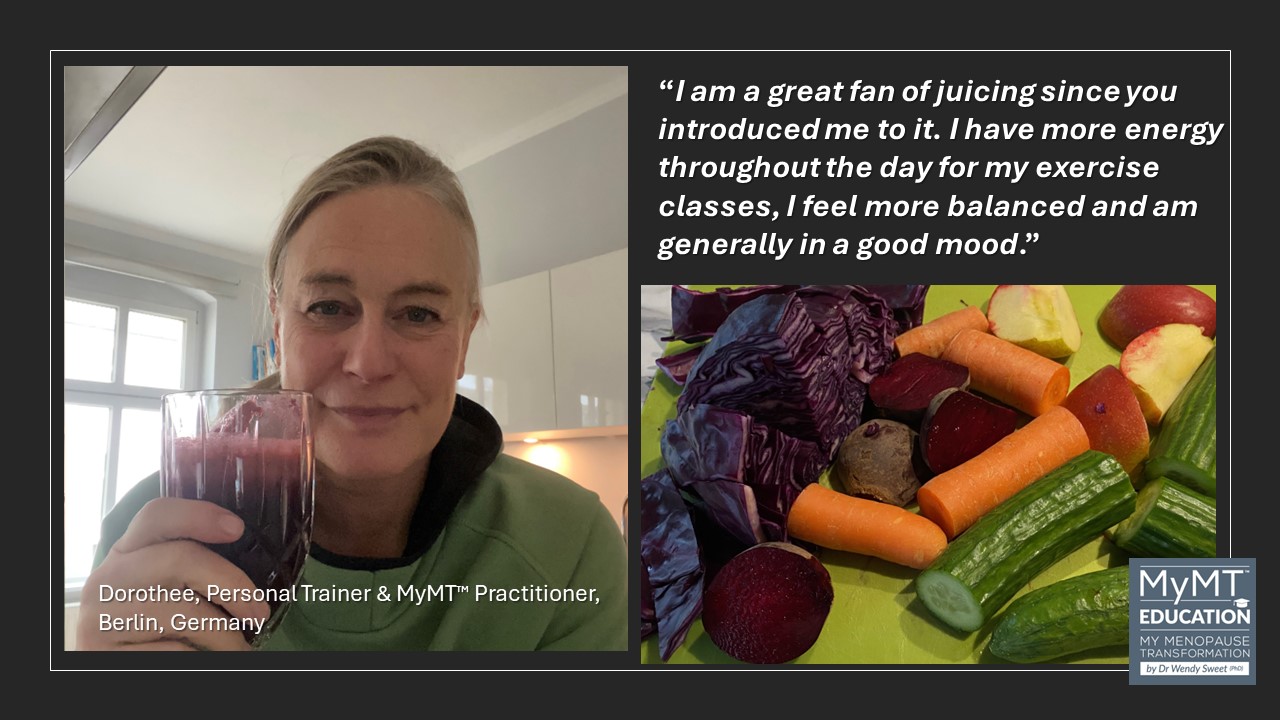
I’ve based most of the information in the MyMT™ programmes and in the MyMT™ Education courses in women’s healthy ageing research.
In many countries where women live to a long age, and experience less cardiac, joint and immune health problems, there is a focus on growing citrus fruits such as lemon and orange trees. As such, research on citrus fruits has gathered momentum over the decades.
It’s now well evidenced that Bergamot oil has antiseptic and anti-bacterial qualities and is also used as an anti-depressant.
Lemons are also well evidenced as being great for heart and liver health. I find it interesting that poor liver health, cardiac health, immune system concerns and depression are all recognised symptoms in menopause.
It’s really important that women understand how to look after themselves as they transition through this important life-stage, and that’s why I have this knowledge for you to share.
My passion is to help women understand what to change with regard to their lifestyle habits and routines to match their changing hormonal environment in menopause and if you are as passionate as I am, then I hope you can join me sometime in 2024 on one of the courses. And yes, you will be encouraged to increase your Vitamin C intake!

If you aren’t quite ready to join me on any of the courses, then perhaps start with with my 2 hour Masterclass on Menopause webinar … and yes, you can ‘pause’ me anytime you like and you have access for 3 months. I tell you about it in the video below.
References:
Attlee, H. (2014). The land where lemons grow. Penguin Books: London, UK
Bani S, Hasanpour S, Farzad Rik L, Hasankhani H, Sharami SH. The effect of folic Acid on menopausal hot flashes: a randomized clinical trial. J Caring Sci. 2013 Jun 1;2(2):131-40. doi: 10.5681/jcs.2013.016.
Carr, A. C., & Maggini, S. (2017). Vitamin C and Immune Function. Nutrients, 9(11), 1211. https://doi.org/10.3390/nu9111211
Duarte, Amílcar & Fernandes, Jacinta & Bernardes, João & Miguel, Graça, 2016. “Citrus As A Component Of The Mediterranean Diet. Journal of Tourism, Sustainability and Well-being, vol. 4(4), 289-304.
Kato, Y., Domoto, T., Hiramitsu, M. et.al (2014). Effect of blood pressure on daily lemon ingestion and walking. Journal of Nutrition and Metabolism, Article ID 912684, 1-6
Mann, J. & Trusswell, S. (2007). Essentials of Human Nutrition. Oxford University Press: London, UK
McCarthy M. & Raval A. (2020). The peri-menopause in a woman’s life: a systemic inflammatory phase that enables later neurodegenerative disease. J Neuroinflammation, 23;17(1):317. doi: 10.1186/s12974-020-01998-9. PMID: 33097048; PMCID: PMC7585188.
Miles E. & Calder P. (2021). Effects of citrus fruit juices and their bioactive components on inflammation and immunity: A narrative review. Front Immunol. 12:712608. doi: 10.3389/fimmu.2021.712608. PMID: 34249019; PMCID: PMC8264544.
Naureen Z, Dhuli K, Donato K, Aquilanti B, Velluti V, Matera G, Iaconelli A, Bertelli M. Foods of the Mediterranean diet: citrus, cucumber and grape. J Prev Med Hyg. 2022 Oct 17;63(2 Suppl 3):E21-E27. doi: 10.15167/2421-4248/jpmh2022.63.2S3.2743.
Pullar, J., Carr, A. & Vissers, M. (2017). The roles of Vitamin C in skin health. Nutrients (9), 866, 1-27.
Reynolds EH. Folic acid, ageing, depression, and dementia. BMJ. 2002 Jun 22;324(7352):1512-5. doi: 10.1136/bmj.324.7352.1512.
Schwingshackl L, Morze J, Hoffmann G. Mediterranean diet and health status: Active ingredients and pharmacological mechanisms. Br J Pharmacol. 2020 Mar;177(6):1241-1257.
